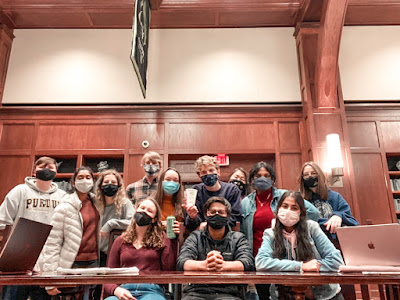5 Things to Know about First Year Engineering
Spring semester is launching full swing at Purdue. We hope
you come join in the excitement next fall. College can seem like a daunting
transition from high school, but we’re here to help you come prepared. Over the
next few weeks, we’ll be sharing advice on what to expect and how to succeed in
First Year Engineering (FYE). In the
meantime, here are a few tips and resources to get you started!
1.
What courses will I take? All FYE
students follow the same plan of study (great for forming study groups!) Courses include engineering, math,
chemistry, and communications. Emily (FYE) explains that “the main difference between engineering and your typical high school
class is that it moves quickly… and you are expected to be prepared. If you do
this, you will definitely succeed in the class.”
2. What
is FYE? Your first year engineering course will introduce you to opportunities in different engineering
disciplines and to engineering design. You get to work in teams to solve
unique design problems and present your solutions. Emily (FYE) says that “practice makes all the difference, and I
highly recommend completing the weekly Bonus Assignments to help solidify the
concepts in your mind… Overall engineering is my favorite class because it
challenges me and introduces me to the true value of engineering.”
3. How
do I succeed in college courses? Go to the help rooms. Abby (FYE) says that
the “help rooms filled with helpful TA’s
are great for homework help and studying assistance.” The Math Help Room
and Physics
Help Room are both popular spots. Grace (FYE) notes that in the Physics
Help room “you will get one-on-one help
with homework or questions.” Purdue provides a variety of resources to help you succeed.
4. How
much will I study? Take advantage of office hours. Professors and teaching
assistants (TA's) are very helpful. Schedule time in your calendar to study and
do homework, and you're well on your way to college success. Allison (FYE)
notes that “homework is due 2 – 3 times
per week for math. The problems take more effort than those in high school, but
there are fewer problems. If you are struggling with a problem, check the
textbook!”
5. What
else should I do? Get involved! Student organizations provide a great
opportunity to meet fellow Boilermakers and pursue any of your 1000+ interests.
Consider checking out one of these engineering
organizations. (We'll feature more of these opportunities in future posts!)





Comments
Post a Comment